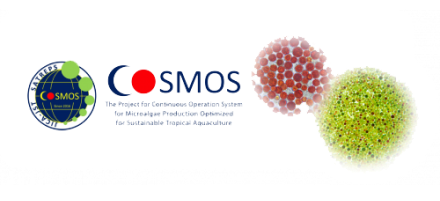Projects| Institute of Plankton Eco-engineering
Projects List
KAKENHI (Japan Society for the Promotion of Science)2025-2028
Comprehensive high-throughput integrated cultivation and cryopreservation of microorganisms from Indonesian hot springs
This project collects microbial samples from hot springs on Sumatra and Java islands in Indonesia to elucidate the diversity of hot spring microorganisms and secure bioresources that will support future taxonomic and applied microbiological research.

KAKENHI (Japan Society for the Promotion of Science)2024-2028
Development of a novel continuous methane fermentation method using co-immobilized gel of anaerobic microorganisms and conductive powder
This project aims to develop a novel process that enhances methane fermentation efficiency by densely immobilizing conductive powders and microorganisms within a gel matrix. This process has the potential to serve as an alternative to conventional aerobic treatment and incineration technologies, and is expected to contribute to the realization of a carbon-neutral society.



KAKENHI (Japan Society for the Promotion of Science)2021-2024
Development of a lunar urine treatment system using coexisting microalgae and aggregated nitrifying bacteria in lunar regolith immersion
This project aims to develop a technology to support long-term human activities in the closed environment of the lunar surface by supplementing magnesium from lunar soil, suppressing the harmful effects of ammonia with nitrifying bacteria, and cultivating microalgae using nutrients contained in urine.

KAKENHI (Japan Society for the Promotion of Science)
2020-2023
A low-cost treatment process for nitrogen containing wastewater using a consortium of microalgae and nitrifying bacteria immobilized into light-shielding hydrogel: a case study in Mexico
This project aims to develop a low-cost treatment process for high nitrogen-containing wastewater in a consortium of “microalgae and nitrifying bacteria” applying the newly developed technique “light-shielding hydrogel beads” for protecting the bacteria from light irradiation. This process is suitable for sun-belt regions such as Mexico where strong daily light is irradiated.


SATREPS
SATREPS-EARTH Project
This project aims to establish a method of management and validated processes in Lake Tana, Ethiopia.




SATREPS (JICA & JST) 2016-2021
SATREPS-COSMOS Project



The project aims to establish a novel microalgae mass culture system using recycled nutrients from aquaculture waste.
Private University Research Branding Project (MEXT, Japan) 2017-2020
PLANE3T Project
This project aims To construct a sustainable recycling society that contributes to environmental conservation and the elimination of hunger in developing countries.






KAKENHI (Japan Society for the Promotion of Science)
2019-2023
Production of super copepod by establishing continuous large-scale culture techniques
Copepods can be used as live feeds for fish in aquaculture industry. We develop "super copepods" fed by microalgae containing high value compounds such as EPA, DHA and carotenoids, therefore "super copepods" show high survivability and productivity.This project finally aim to establish mass cultivation technology for super copepods.

KAKENHI (Japan Society for the Promotion of Science)
2018-2020
Development of biochar-based purification technology for anaerobic digestion effluent: application for microalgal cultivation
This project aims to cultivate high-value microalgae by purifying nutrient-rich methane fermentation digestate using a combination of simple technologies suitable for developing countries, such as sand filtration and biochar filtration.


Japan Aerospace Exploration Agency (JAXA), Global Change Observation Mission-Climate (GCOM-C)
2019-2022
High-frequency Validation of Radiometric Measurements, Inherent Optical Properties and Phytoplankton Functional Types in the Coastal Waters of Sagami Bay
Accurately measure quality in situ radiometric and bio-optical properties at high temporal frequency from a coastal (Case II) survey station in Sagami Bay, Japan towards vicarious validation of GCOM-C/SGLI ocean color products.



Sin-kamigoto Town Office
2017-2020
Barren ground countermeasure project in Shin-kamigoto cho
This project aims at transplanting Sargassaceae larvae to restore seaweed beds at Arikawa Bay in Shin-kamigoto.





